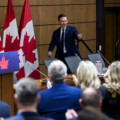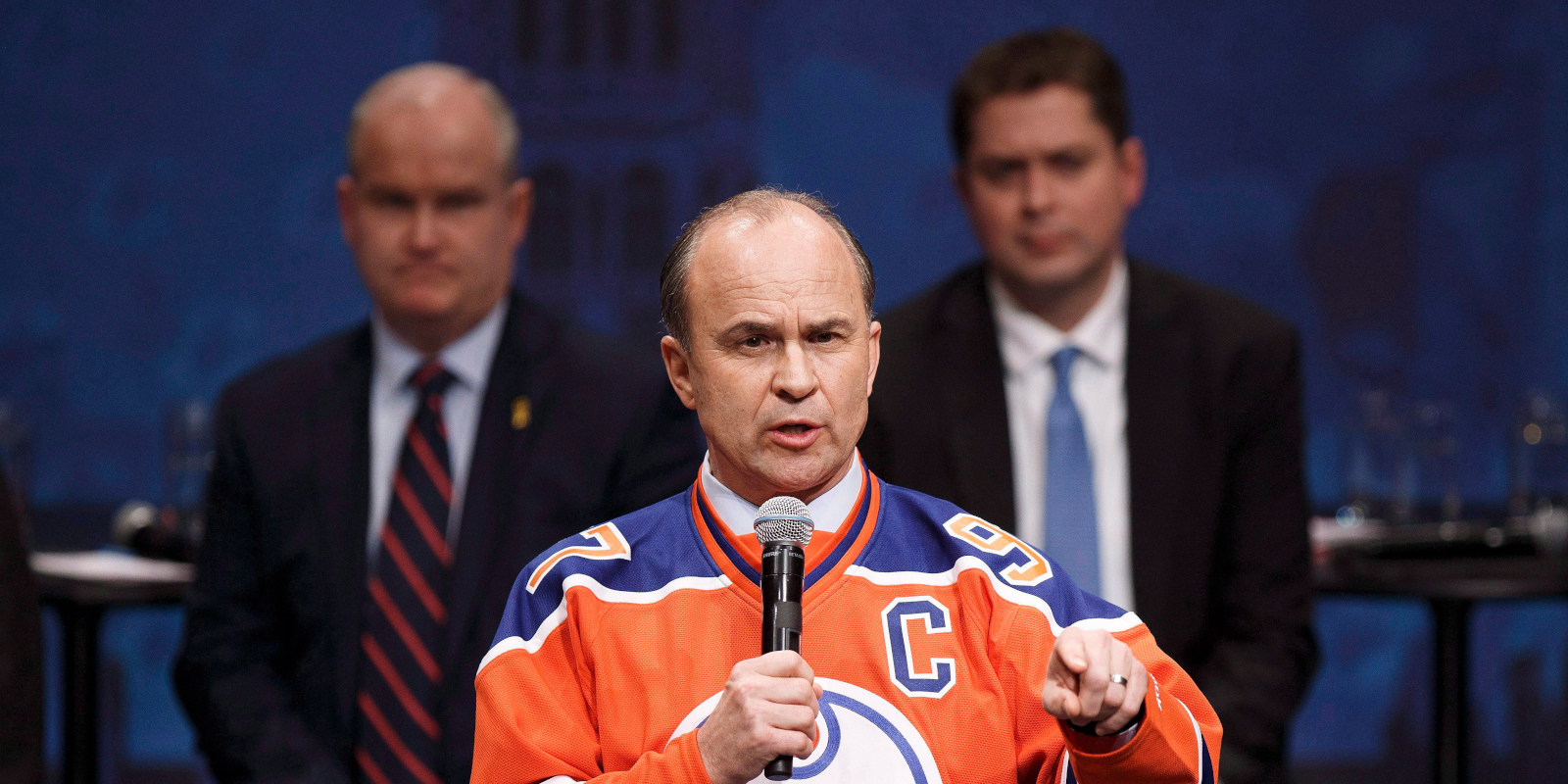The Centre Ice Conservatives, a group of self-described moderate conservatives gathering in Edmonton next week, have been playing a lot of defence lately.
There have been accusations they are plotting to undermine Conservative leadership frontrunner Pierre Poilievre, allegations that it’s the beginning of a movement to form a new “Red Tory” party, and critics have suggested the conference is simply in response to Poilievre’s “bad manners.“
On all counts, the organizers plead not guilty.
But the nature of the conference does raise a key question: what even is a moderate conservative these days?
The advocacy group, co-founded by businessman Rick Peterson, describes itself as a platform for centre-right conservatives, and centrists in general, who feel marginalized in the political sphere.
The group argues that Canadian politics are being dominated by the “woke” Left and the fringes on the populist Right, leaving the “majority of mainstream Canadians” without representation, a void that CIC hopes to help fill.
“My concern is, right now, we have a political discourse that’s dominated by people on the Left and Right saying everything’s terrible and that nothing short of stripping everything down is going to make things better,” says Dominic Cardy, a CIC advisory council member, and cabinet minister in New Brunswick’s Progressive Conservative government. Before joining the PCs, Cardy was the leader of the New Democratic Party in New Brunswick.
Cardy says there are huge numbers of Canadians in the political centre who want to see institutions reformed, not torn down, but lack a voice.
It’s hard not to see this as a response to Poilievre, who has dominated the leadership race with a large social media presence and boisterous rhetoric about some of the country’s beleaguered institutions. He has promised, among other things, to replace the Bank of Canada’s governor and remove the “gatekeepers,” who he says hurt the aspirations of everyday Canadians.
Bryan Brulotte is another member of CIC’s advisory council and also a supporter of Poilievre’s candidacy. He disagrees with the idea that “populism” is always a negative impulse, instead seeing it as an expression of the will of Canadians, or at least a large number of them.
“The tone that’s expressed sometimes, it is a tone of maybe exasperation or a sense of frustration that it’s not being heard,” says Brulotte.
Poilievre is known as a staunch fiscal conservative, but is also pro-choice and supports marriage equality. Brulotte agrees that Poilievre fits the mold of a centrist in some ways, believing it is possible for him to be both a populist and a centrist at the same time.
The Centre Ice Conservative gathering—officially dubbed the Let’s Grow, Canada! conference—boasts some well-known speakers, with the Globe and Mail’s Andrew Coyne, the Macdonald-Laurier Institute’s Brian Lee Crowley, and University of Calgary economist Jack Mintz all scheduled to speak. Former B.C. premier Christy Clark will be the keynote speaker at the event on Aug. 11.
The key question for attendees will be whether the Conservatives can veer to the centre without losing too many voters on the Right.
In an upcoming episode of Hub Dialogues, Tasha Kheiriddin, another member of the CIC’s advisory council and campaign co-chair for Jean Charest, cites the old Conservative Party of Sir John A. Macdonald as a model. She said Macdonald strove for progress that was guided by conservative ideas and the goal of national unity.
“I’d like to see our party look like that, I’d like to see our party be that big tent that can address issues of unity, but also focus on economic development and inflation,” said Kheirridin.
Her words come at a time when the province of Quebec’s nationalist government is re-asserting autonomy from the federal government. Meanwhile, candidates for the leadership of Alberta’s United Conservative Party debate about an “Alberta Sovereignty Act.”
Kheiriddin says that while conservatives of all kinds tend to unite around economic policies, there is more to conservatism than that.
“There are other elements of conservatism that are also incredibly important, freedom of the individual and freedom of speech, personal freedoms and liberties, but also a sense of community,” says Kheiriddin.
For Brulotte, the ideal scenario is a Poilievre-led Conservative Party that is infused with ideas from a lively faction of moderates. He believes CIC has a role to play in conservative politics when the leadership race ends on September 10 and says he wants a big-tent Conservative Party, not a fractured one.
“I think that the CIC, what it does, is it represents an engaged group of concerned conservatives who want to make sure that a centrist position is heard within the existing Conservative Party today,” says Brulotte. “And as in any party, at the end of the day, we follow the leader, and we stick together, because united, we’re stronger than divided.”
Recommended for You

‘A delicate balance’: Why the Conservative convention is a crossroads for the party

Everyone’s managing decline. I’m exploring a run for Ontario Liberal leader to fight for growth

‘He has to persuade people’: What’s at stake for Poilievre at the CPC convention

8 things to watch for as Conservatives gather in Calgary for party convention




